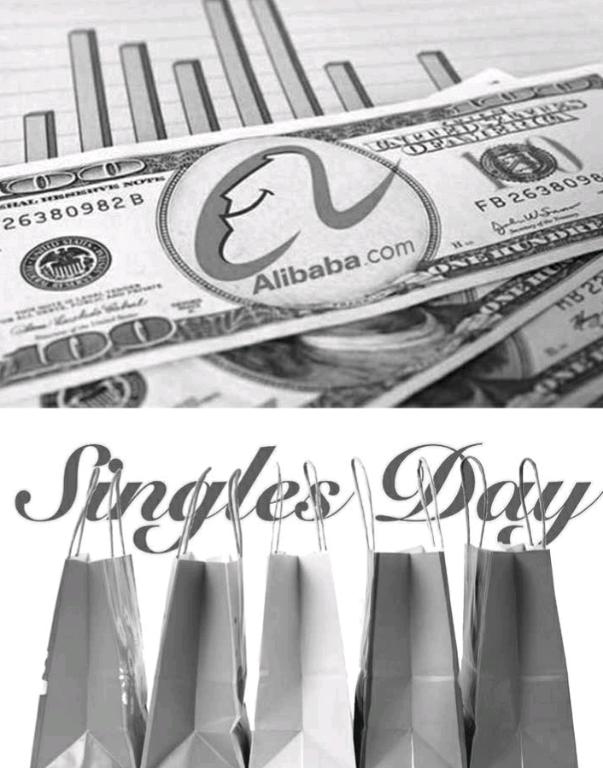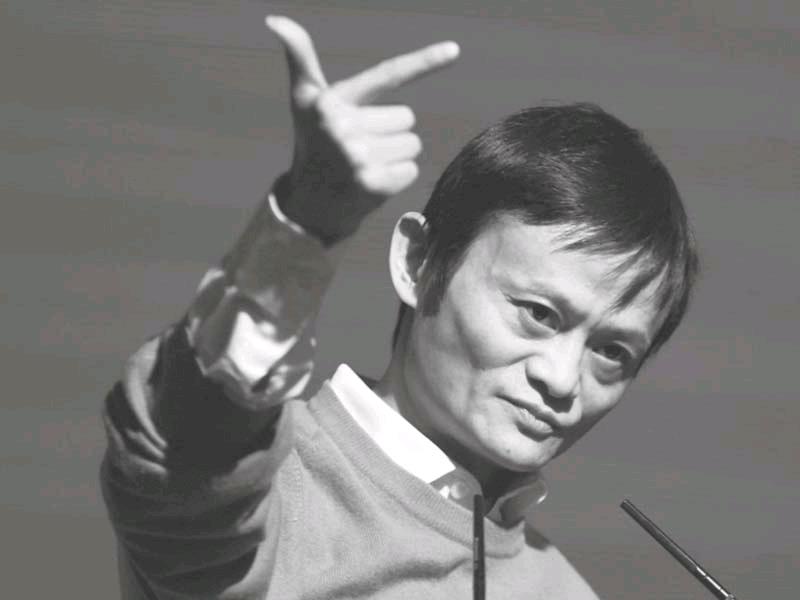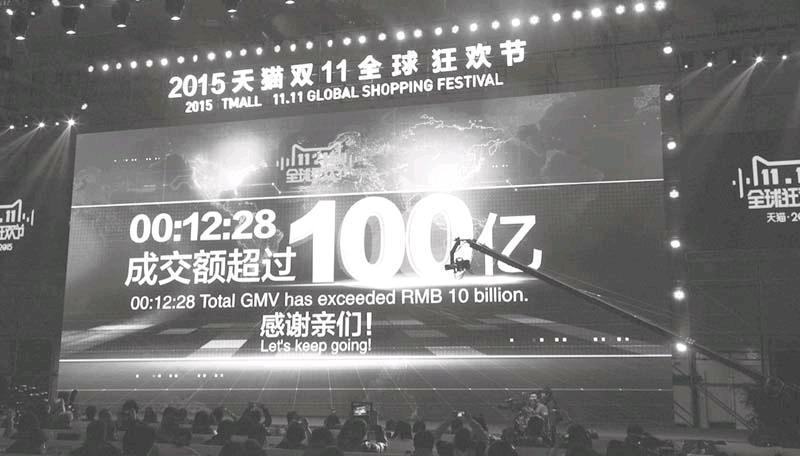Embrace Shopping Bonanza
2016-02-21
Double Eleven Day: Chinas Black Friday
In China, November 11, dubbed Double Eleven Day or Singles Day, is a very big day like Cyber Monday in the United States and Black Friday in the UK.
Singles Day, a term coined by college students in 1993, got the name because the date is comprised of four “ones”. As the name indicates, this relatively new holiday is one exclusively for people who are still living the single life. It was first celebrated at various universities in Nanjing, capital city of Jiangsu Province during the 1990s.
These college students have since graduated, and carried their university tradition into society. Singles Day is now a special day for all fashionable youths. China is the only coun- try in the world that has set aside a special day for singles to celebrate their lives. Its popularly described as Chinas antiValentines Day.
The main way to celebrate Singles Day is to have dinner with your single friends, but its important that each person pay their own way to show their independence. People also hold ‘blind date parties in an attempt to bid goodbye to their single lives.
In 2009, Chinas e-commerce conglomerate Alibaba held the first Singles Day sale and provided discounts and online promotion, triggering a buying frenzy. Only 27 stores on Alibabas Tmall, a Chinese-language online retail site, took part in the first Singles Day, with total sales failing to reach 100 million Yuan, or 14.6 million US dollars at the time.
Singles Day is now a full-fledged e-tail phenomenon. It is the biggest day of the year for online sales when Chinas ecommerce giants slash their prices for 24 hours of frantic online sales. Single people always buy something for themselves on the day.
In the lead-up, stock investors go hunting for companies that stand to benefit from the one-day surge in online sales. In 2014, some 27,000 shops joined the frenzy, raking in 57.1 billion Yuan in sales.
With the quasi holidays power to turn consumers into carnivorous customers showing no signs of weakening, more than 40,000 shops and 30,000 brands took part in the carnival this year, offering over 6 million items.
It was not just China-focused either; 5,000 overseas brands from 25 countries such as the U.S, Europe, Japan and South Korea will be available. An estimated 100 million shoppers are expected to spend an average of 1,761 Yuan each in 2015.
Shopping Carnival: 92.6-bln-yuan GMV
This year, the shopping carnival fell on Wednesday and the smash retail hit drew international attention as usual.
In the lead-up to Singles Day, Alibaba hosted a four-hour televised event called “2015 Tmall 11.11 Global Shopping Festival”.
The Singles Day gala, directed by famed film director Feng Xiaogang, was compared to the CCTV-run gala that airs each year in the countdown to the new lunar year and the beginning of Spring Festival. Like the Spring Festival gala, the Singles Day gala was streamed live throughout the world as it counts down to the beginning of Alibabas Singles Day sale at midnight.
The Singles Day gala featured a performance by Americal Idol finalist Adam Lambert, an on-stage appearance by Daniel Craig of James Bond-fame with company founder Jack Ma, and Kevin Spacey wishing Chinese customers a “Happy Singles Day” in a special H ouse of Cards-themed advertisement.
According to Zhang, the e-commerce giant is focused on four concepts -- omnichannel, mobile, logistics and globalization -- in launching this years global shopping fiesta. The company said the event will “demonstrate the power of Alibabas ecosystem, including the unparalleled scalability of its logistics model.”
Ever since the holiday officially began at the stroke of midnight on Wednesday, Alibaba gave sales updates. So, the whole world can witness the power of Chinese consumption.
As Alibaba CEO Daniel Zhang Yong said, consumers had “a new surprise every hour” over the 24-hour marathon, especially mobile users.
It only took 1 minutes and 12 seconds for the company to rake in 1 billion Yuan. In the first 12 minutes and 28 seconds of this years sale, the company generated more than 10 billion Yuan in sales, beating last years record of 38 minutes to hit the 10-billion-yuan mark.
According to the e-commerce giant, its gross merchandise volume (GMV) surpassed last years record of 57.1 billion Yuan, or 9.3 billion US dollars, by 1 p.m. Beijing Time in China on Wednesday. Its also well above the 2.4 billion-US-dollars sales record on Cyber Monday.
Thanks to the buying spree, Alibaba broke its own record this year, with GMV totaling 92.6 billion Yuan on the day, a whopping 60% increase from last year. In comparison, sales on Cyber Monday, the biggest online sales day for the U.S. that falls on the first Monday after Thanksgiving, hit 1.35 billion US dollars, according to data analytics firm ComScore.
With the worlds second-biggest economy heading for its slowest growth in nearly a quarter of a century, the huge success of Alibaba boosted investors confidence.
Although its competitors offered attractive discounts, consumers attention was still focused on Alibabas online marketplace Tmall.com, according to Sun Fangting, Chinabased analyst at market research firm Euromonitor International
“Its not only due to the wide choices and competitive prices, but also the heavy marketing campaigns especially the successful gala evening which invited lots of famous entertainment stars,” she said.
Power of Chinese Consumption
The whole world is witnessing the power of Chinese consumption, especially the power of online consumption. Kitty Fok, China manager for market research firm IDC said online shopping had become a comfortable channel for most consumers.
“China is a big market with close to one billion smart connected device users - it is good news for both Alibaba and their competitors,” she said.
Sun said the shopping event would not only stimulate domestic demand but also trade.
“Alibaba aims to both attract more international players selling products to China and the domestic players to expand to the overseas markets,” she added.
Zhang said: “Chinese consumers will be buying an unprecedented assortment of international brands and products from around the world,” among them, Costco, Disney, Lego, Sainsburys, Burberry, Estee Lauder, Nike, Topshop and Uniqlo.
“Its not a huge surprise that consumers are planning to spend more during this years Singles Day. Income levels and internet penetration continue to rise throughout China, so this is a natural progression,” said Yan Xuan, President of Nielsen Greater China.
Three-out-of-five respondents in Nielsens survey said they would purchase or consider purchasing overseas products this year.
“As Chinese consumers become increasingly sophisticated, their desire for high quality and niche products is also rising. In line with this trend, more and more consumers are turning to cross-border and overseas purchasing,” Nielsen noted.
Early bird promotions and preorders are becoming an increasingly effective means for e-commerce players to drive more traffic to their sites and lock in purchases, with over 90% of Nielsens respondents intending to place items in their online carts before the day as to avoid products selling out.
In this years buying spree, many products were sold out just within several minutes. “I wanted two different coats, but they both sold out in the first three minutes of the sale!” complained one young woman online.
Slower shipping and delivery times remain problematic for consumers, as mentioned by 62% of the surveys respondents.
Logistics companies say they are using every tool possible to maximize efficiency.
“It will be better this year as we are using data and preorders to prepare for goods in advance,” said Karen Wang, partner at JX E-Commerce & Logistics.
Cainiao Logistics, the logistics affiliate of the Alibaba, has got ready for this years 11.11 Global Shopping Festival.
“The massive number of delivery orders generated from this great online shopping event really pushes our delivery partners and us to do our very best,” said Cainiao Chief Technology Officer Ben Wang. “By leveraging big-data technology and our extensive domestic and international logistics network, all of us stand ready to deliver world-class logistics services to our customers once again this year.”
Cainiao has been developing and expanding logistics applications using the companys big-data technology and algorithm capabilities.
These applications include an e-Waybill system that shares shipping information among delivery firms, customers and merchants; a digitized parcel sorting solution, which helps logistics workers to sort packages to optimal delivery routes, reducing errors and enhancing efficiency; and parcel forecasting applications to help delivery firms to beef up its facilities ahead of time.
To facilitate international deliveries for this years shopping festival, Cainiao has launched Hassle-free Logistics Service enlisting the support of 49 cross-border delivery partners who have set up 16 dedicated cross-border delivery routes and 74 warehouses that can support 4 million package deliveries per day.
It has also made arrangements for faster customs clearance for cross-border packages via bonded warehouses while integrating logistics data sharing with local customs in Shanghai, Hangzhou, Ningbo and Guangzhou.
Driver of Stock market
Even beyond Singles Day, the robust growth of online shopping in China is becoming a key long-term driver of the countrys stock markets.
Alibabas success has prompted investors to look for prospective Singles Day beneficiaries. Last year, stocks related to online payment services were snapped up.
This year, investors are piling into the stocks of omnichannel retailers that integrate online and offline operations as well as those of delivery services.
Suning Commerce Group, which operates a chain of electronics stores and is listed on the Shenzhen stock market, is expected to enhance Alibabas ability to supply appliances and to get them to customers via its nationwide store and distribution networks, according to CCB International (Holdings).
Along with the Intime Retail (Group), a Chinese department store chain listed on the Hong Kong stock market, Suning is attracting the interest of some investors as a bricks-andmortar retailer affiliated with Alibaba.
Another Singles Day-related stock that is gaining popu-larity is Sinotrans, a government-affiliated comprehensive logistics service provider.
Chinas Success in E-commerce
Chinas e-commerce sector is growing fast. There are a few reasons for Chinas success in e-commerce. One is that, for many Chinese businesses, it has made sense to leapfrog brick-and-mortar expansion and go straight to promoting their products online. China is a geographically large and heavily populated country. For most retail chains, ensuring that a significant portion of Chinese customers have access to their stores would mean undertaking a huge amount of construction.
At the same time, the Chinese have been very quick to get online and, specifically, to adopt mobile Internet. A report released this year by the Global System for Mobile Communications Alliance said that China has the worlds highest penetration rate for smartphones, with 62% of Chinese owning smart phones during the first three months of the year, compared with 55% of Europeans.
Unlike people in the United States, many Chinese went directly to using mobile Internet without ever going online us- ing a desktop computer or a laptop.
And many Chinese have become comfortable shopping on their phones, a boon for thee-commerce industry. That is especially true for Chinese consumers outside the countrys major cities. Demand from Chinas smaller cities helped ecommerce revenues expand by than 70% a year between 2009 and 2012, according to research by KPMG, a consultancy.
Indeed, the consultancy Bain & Co. found that a higher percentage of retail sales were made online in China than in the United States, Germany, Japan or Canada.
In the first hour of Singles Day this year, Alibaba said, 73% of purchases on its platforms were made via mobile phones.
Another reason that Chinas e-commerce sector is so developed: Competition is fierce. One company dominates the industry - Alibaba accounts for more than 80% of online sales in China - but there are other contenders such as JD.com, Tencent and Suning fighting for a piece of its business. Competition has encouraged both innovation and customerfriendly practices and prices in the sector.
